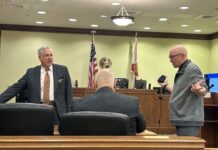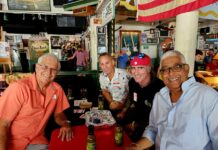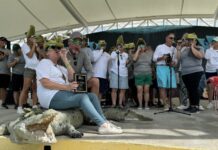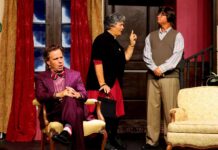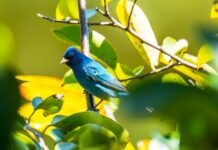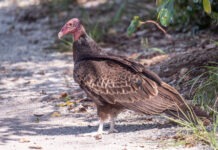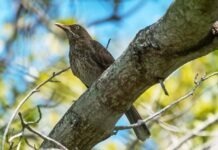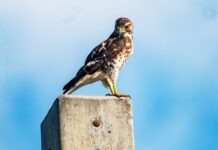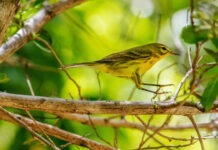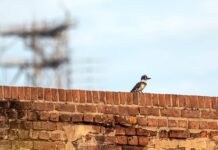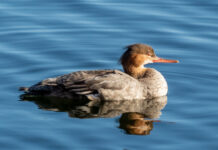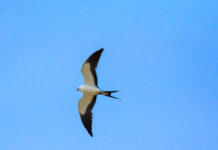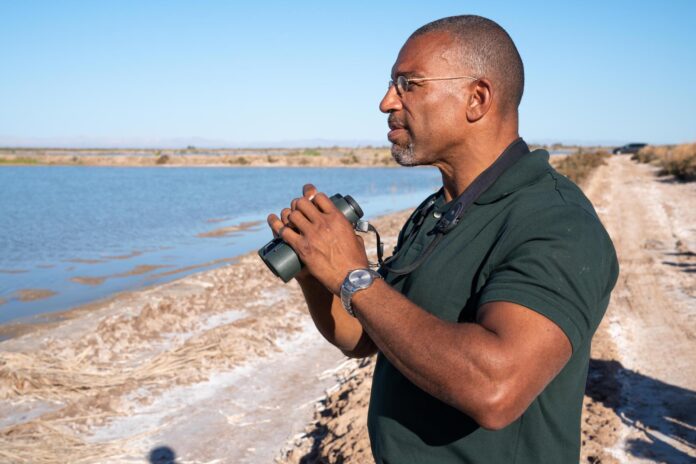
Christian Cooper was known in the birder world before he got famous in the rest of the world.
The 2012 documentary “Birders: The Central Park Effect” features a number of interesting birders.*
There’s Starr Saphir, a former actress who was in the late phases of battling terminal breast cancer, but led bird walks in the park four days a week. (I actually went on one of her bird walks years before the documentary.) There’s Jonathan Franzen, the novelist most famous for getting de-selected from Oprah’s Book Club after being kind of a jerk about getting selected, and who is a somewhat serious birder, but expresses his discomfort with being a birder because, well, it’s kind of geeky. (I’m not a big fan of his doorstop novels, but I like what nonfiction I’ve read by him, a good bit of which is about birding.)
And then there’s Cooper, who appears in the early part of the documentary and acts as something of a Virgil, a guide for the uninitiated. He catches sight of a prothonotary warbler and says things like, “You think this little bird realizes that he’s causing joy for all these primates standing around just kind of staring at him?” Looking up into the trees he catches a glimpse of something and says, “Ooh. Blackburnian (warbler). I’ve gotta find the f***er. You can bleep that.”
He talks about how his non-birder friends mock him because he pretty much disappears from their lives April 15 through Memorial Day every year, so he can get up early every morning and look for migrating songbirds in the park.
He also rattles off his “Seven Pleasures of Birding,” which is what he uses to explain to his non-birding friends what he gets from going to the park every morning:
1) The beauty of birds.
2) The joy of being in a natural setting.
3) The joy of scientific discovery.
4) The joys of hunting without the bloodshed.
5) The joy of puzzle solving.
6) The joy of collecting.
7) The unicorn effect.
By “unicorn effect,” he meant the joy of seeing something in real life which, until that moment, had been a mythical creature you’d only seen in a book.
I found it simultaneously reassuring and discomfiting to have someone you don’t know break down the reasons you love something so succinctly.
Cooper presented a little differently from most birders. For one, he was pretty well dressed, sporting a kind of leather motorcycle/bomber style jacket in half of his appearances in the documentary. Also, he looked pretty buff, and I really haven’t met a lot of birders who spend significant time at the gym. Also, he’s black.
The being black part, of course, should not matter. But for a quick course on why it does matter, Google J. Drew Lanham’s “Rules for the Black Birder” which is available in both video and list form. (1. Be prepared to be confused with the other black birder. 2. Carry your binoculars — and three forms of identification — at all times. 3. Don’t bird in a hoodie. Ever.)
Also, to see why it mattered in Cooper’s case, look at the headlines from May 25, 2020. On that day he was birding in an area of the park known as the Ramble, when a dog came tearing through the area. He asked the dog’s owner to put a leash on it, as unleashed dogs were not permitted in what was supposed to be a protected area of the park, and he didn’t want it disturbing the wildlife. In response, the woman called the police and falsely claimed she was being threatened by an African-American man in the Ramble and to please send the cops immediately, despite Cooper really just asking her to leash her dog and keep her distance. She called 911 a second time to falsely claim she had been assaulted.
It was the same day George Floyd was murdered by members of the Minneapolis Police Department. Fortunately, Cooper had recorded everything on his phone.
Cooper had some notoriety outside the birder world before this. While working for Marvel comics he helped create the first out gay characters in both the Marvel universe and the Star Trek universe. (Cooper is also gay.) But suddenly he was thrust into a whole other stratosphere of fame.
What came out of all the coverage and interviews that followed the Central Park incident, beyond just the outrage that someone would callously weaponize race in a situation like that, was what a centered, calm and passionate human being he was, a deft advocate for birds and everyone’s right to love and be fascinated by them. He had a great voice.
Which was why I was so happy to see an essay by Cooper, along with some killer illustrations by Wesley Allsbrook, featured on the front page of the New York Times Sunday Opinion section this weekend. (Thanks to everyone who sent it to me.)
In it he writes about the Central Park incident:
“Little did I know that those 14 words would reverberate across the nation and alter the course of my life.
“But then again, birding has changed my life many times over.”
He also describes his young self as “queer and nerdy and not particularly popular. I was suffocating in the closet, and birding offered me a way to escape.”
He talks about seeing his first red-winged blackbird and thinking the rather common species was a new species of crow he’d discovered. (It can feel that way sometimes, even as an adult.) And why Central Park is such a great place to bird. (It’s an oasis of habitat surrounded by a world of concrete.) And how the desire to see indigo buntings and scarlet tanagers gets him out of bed at 4:20 a.m.
“Of the many disorienting twists in the aftermath of the Central Park incident, one of the most unexpected is that my voice is now amplified in matters about which I have always spoken out, including preaching the gospel of birding,” he wrote.
To take advantage of that, he has a book coming out on June 13 called “Better Living Through Birding: Notes from a Black Man in the Natural World.” (I’ve already put in an order at Books & Books.) He also has a TV show premiering June 17 on the National Geographic channel called “Extraordinary Birder,” which will follow him to different parts of the United States looking for rare birds.
I can think of few better candidates to open up people’s perceptions about birds and birders.
*You can stream “Birders: The Central Park Effect” (and 11 other movies a month) on the Kanopy app, free with a Monroe County library card.
